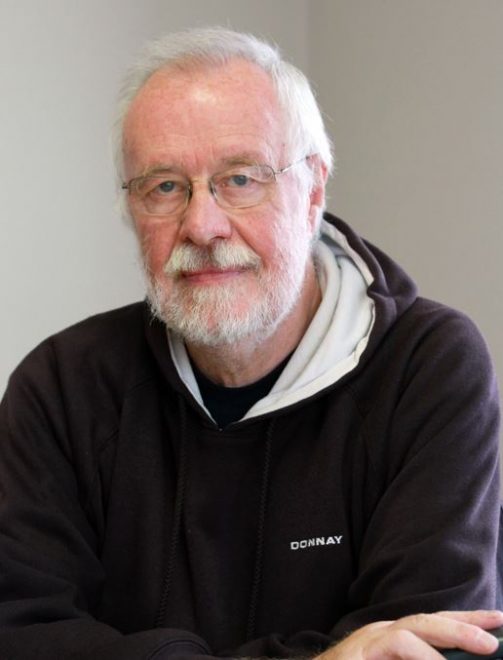
Former school teacher Jim Toland who has been a Samaritan volunteer for 21 years.
A Letterkenny Samaritan says there is more need for the organisation today than there has ever been.
Jim Toland, a former French teacher at St Eunan’s College, has been a volunteer with the charity for 21 years.
In those two decades he has seen it all – from helping to save lives to listening to those who, sadly, were quite simply beyond reach.
And while it might sound depressing, Jim says being a Samaritan is anything but. He says that while it can be challenging, it is also immensely life affirming.
Ahead of an information evening taking place at the organisation’s North West branch on Derry’s Clarendon Street, Jim Toland revealed how there is a serious need for more people to step up and become Samaritan volunteers.
“I taught at St Eunan’s for 32 years and when I was there I realised that young people have a lot going on in their lives, stuff in the background that is more important than irregular verbs.
“When I retired, I was able to go and finish a counselling diploma I had started at Magee. Then one day I just rang the Samaritans and asked them if they needed volunteers. That was in 1997 and I’ve been doing it ever since.”
For over 60 years the Samaritans have been providing a confidential, non-religious and non-judgemental ear for those struggling with various facets of life. From those dealing with a bereavement to those facing a relationship breakdown, the Samaritans are there 24 hours per day in over 200 centres across Ireland and the UK.
And while things have changed on the technology front – today volunteers engage with callers via telephone, in person, through text message and in emails – the issues facing society remain largely the same.
One of those issues is suicide. Once a great taboo, it is something that, thanks to the likes of the Samaritans, Pieta House and Derry’s HURT, is at last being discussed openly.
“When I joined the Samaritans, suicide was a bit of a taboo and it was something people didn’t talk about,” says Jim Toland.
“We still don’t talk about it enough but when I talked to people back then, they said the same thing as they do today – If I only had someone to listen to me. And that is what the Samaritans do, we provide that neutral place to go and talk to someone. And in a lot of cases when you create that space where people can talk away, that is enough. You explore their options with them and let them know that they aren’t going mad, that it is fine to be depressed. You help them sort things out, give them a perspective and let them see that their situation is actually not that unusual.”
For some people though, there is nothing left. And that is where being a Samaritan volunteer can be extremely difficult. Jim recalls speaking to people who have made their final decision and who simply needed someone to chat to in their last minutes and hours.
“That can be difficult,” admits Jim. “When it happens you tend to ask yourself, ‘did I do enough’, ‘did I ask enough questions’, ‘could I have done more’.”
On the other side of the coin though, Jim Toland has on at least one occasion saved a life.
“I remember getting a call from a guy in Bristol. He was in his car in a lay-by with a hosepipe in the car. We managed to get him talked around and he let us call the police. We did that and they rang us back to say everything was fine.
“Without a doubt there are two sides and it can get heavy but what it also does is it makes you feel human.”
In terms of what it takes to be a Samaritan, volunteers must be prepared to put in five hours per week with one night shift a month, 10.30pm to 4.30am. And expect to be busy. Last year the Samaritans in Ireland dealt with 625,000 calls.
Full training is given however and according to Jim Toland, being a good listener is really all it takes.
“Part of the problem in today’s society is that there aren’t enough people to listen or people are too busy. We as Samaritans are saying ‘we are here’.
“I’ve sat on a call for four hours to the same person. If you go to your GP, you might get a 15 minute slot. They haven’t the time so we are about having someone who won’t get fed up listening and who won’t tell you what to do.
“ Being a volunteer, things can get heavy but most people can do it. And the training we get is fantastic and it will really open your mind.
“We have a saying that if you go in in bad form you definitely won’t come out in bad form because will realise your problems are pretty minor.
“It’s good for the soul, it really is and my advice to anyone thinking of getting involved would be to come to the information evening. You will learn a lot there, you can ask all the questions you want and you will know from there if it is for you.”
The Volunteer Information Evening will be held on Wednesday, September 19 at 7pm in the Samaritans branch on Clarendon Street, Derry. To register your interest call 0044 756 266 9080.









